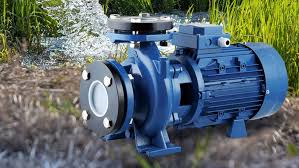Efficient irrigation is essential for improving crop yields and ensuring consistent food production in Nigeria’s diverse farming environments. Choosing the right irrigation pump is a key step in setting up a reliable water delivery system. The right pump ensures that water reaches crops efficiently, saves energy, and reduces operating costs.
Factors to Consider
The first step in selecting an irrigation pump is to evaluate your water source. For shallow sources like rivers, streams, or ponds, centrifugal pumps are a cost-effective choice because they work well over short to medium lift heights. If your water source is underground, submersible pumps are ideal for deep wells because they operate underwater and push water to the surface efficiently. For very deep boreholes and high water demand, vertical turbine pumps are a better solution, as they can handle large volumes of water continuously.
You should also consider the type of irrigation system you are using. Drip irrigation systems benefit from positive displacement pumps, which deliver water at a steady and precise rate. For sprinkler systems or flood irrigation, centrifugal or turbine pumps usually provide the required flow and pressure.
Energy availability is another crucial factor. Nigerian farms may rely on grid electricity, generators, or solar power. Solar-powered pumps are becoming increasingly popular as a cost-saving and eco-friendly alternative in areas with abundant sunlight and unreliable grid power.
Finally, consider maintenance and durability. A good pump should be easy to service, with spare parts readily available locally.
By carefully assessing water source, irrigation method, energy options, and maintenance needs, farmers in Nigeria can select an irrigation pump that maximizes productivity while minimizing costs.


Leave Your Comment